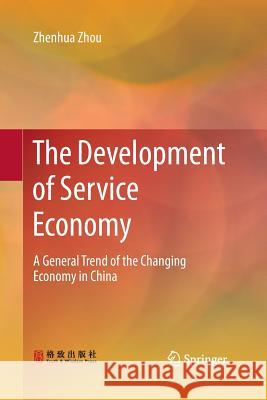The Development of Service Economy: A General Trend of the Changing Economy in China » książka
topmenu
The Development of Service Economy: A General Trend of the Changing Economy in China
ISBN-13: 9789811012846 / Angielski / Miękka / 2016 / 318 str.
Kategorie:
Kategorie BISAC:
Wydawca:
Springer
Język:
Angielski
ISBN-13:
9789811012846
Rok wydania:
2016
Wydanie:
Softcover Repri
Ilość stron:
318
Waga:
0.46 kg
Wymiary:
23.39 x 15.6 x 1.75
Oprawa:
Miękka
Wolumenów:
01
Dodatkowe informacje:
Wydanie ilustrowane











